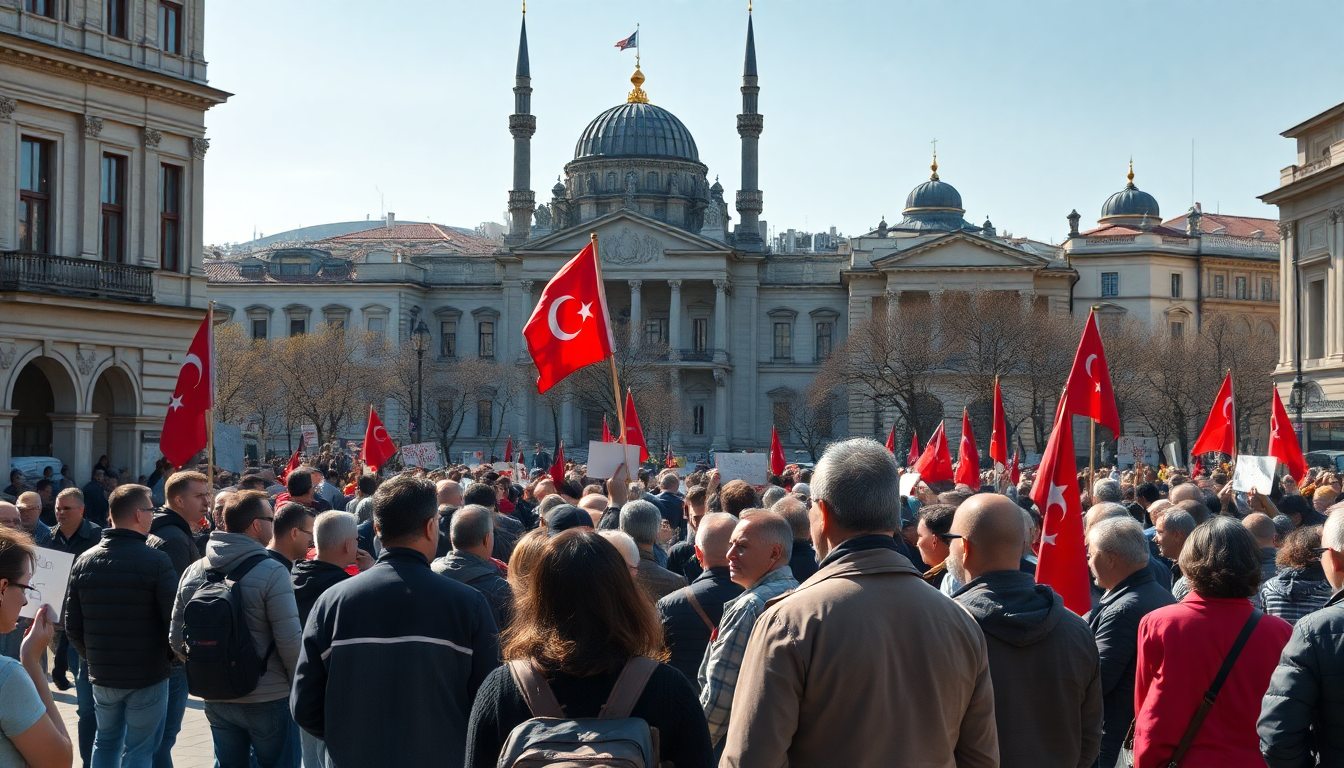Table of Contents
The political landscape in Turkey is undergoing significant changes, particularly as the government tightens its grip on opposition figures. Today, we’re diving into the recent sentencing of Istanbul Mayor Ekrem İmamoğlu and exploring what this means for Turkey’s democracy in a time of rising tensions.
What Happened to Ekrem İmamoğlu?
Just last Wednesday, Turkish media reported a shocking development: Ekrem İmamoğlu, the mayor of Istanbul and a key opponent of President Recep Tayyip Erdoğan, received a sentence of one year and eight months in prison. The charge? Allegedly insulting and threatening Istanbul’s chief prosecutor. This latest conviction adds to a series of legal challenges İmamoğlu has faced since March, when he was detained over a separate corruption case—a claim he vehemently denies.
İmamoğlu’s conviction stems from his public criticism of Istanbul’s Chief Public Prosecutor, Akın Gürlek, whom he accused of targeting opposition figures with unwarranted investigations. This situation has raised serious concerns about the state of democracy and free speech in Turkey. In March, his arrest sparked massive protests across the country, which were met with a heavy-handed response from Ankara, resulting in thousands of demonstrators and opposition supporters being arrested.
Why Is This Happening?
This latest incident isn’t an isolated event; rather, it fits into a disturbing trend of political repression in Turkey. The government has ramped up its efforts to stifle dissent and target opposition leaders. Back in 2022, İmamoğlu was sentenced to over two years in prison for criticizing election board officials who annulled the 2019 Istanbul elections, where he emerged victorious against Erdoğan’s candidate. Although his legal team is appealing this decision, the final ruling remains pending.
In Turkey, sentences aren’t enforced until all appeals have been exhausted, which means İmamoğlu is likely to appeal this latest conviction as well. This ongoing legal saga not only underscores İmamoğlu’s personal challenges but also reflects the broader struggle for political power and freedom in Turkey, where dissent increasingly faces harsh repercussions.
What Does This Mean for Turkey’s Future?
The ramifications of these judicial actions reach far beyond İmamoğlu himself. They signal a deepening crisis for Turkey’s opposition parties, who find themselves in an increasingly hostile environment. The rising number of arrests among opposition figures suggests a systematic effort to silence criticism and consolidate power within Erdoğan’s ruling party. As the political landscape continues to shift, one pressing question looms: what does this mean for the future of democracy in Turkey?
The international community is closely monitoring these developments, with many expressing concern as Turkey’s political stability significantly impacts regional dynamics. The actions against İmamoğlu and other opposition leaders could lead to greater isolation for Turkey on the global stage, especially as calls for democratic reforms intensify from various corners of the world.


